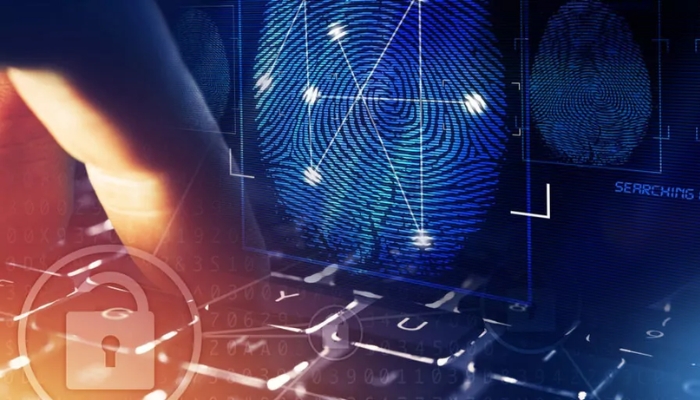Different Type of Digital Forensic Investigation and Its Importance
Different Type of Digital Forensic Investigation and Its Importance
What is digital forensics?
Digital forensic investigations play a critical role in ensuring the safety and security of our digital world by uncovering and analyzing evidence of cybercrime and other digital misconduct. This can include identifying the source of a cyberattack, recovering deleted or hidden data, and determining the extent of damage caused by a data breach. The findings of a digital forensic investigation can be used to hold individuals or organizations accountable for their actions, as well as to develop strategies for preventing similar incidents in the future. Additionally, digital forensic investigations can also help organizations comply with legal and regulatory requirements related to data protection and privacy. Overall, digital forensic investigations are a vital tool for maintaining trust and integrity in our increasingly digital world.

There are several types of digital forensic investigations, including:
- Computer Forensics: This type of investigation involves the examination of computer systems and related devices to uncover evidence of criminal activity or other misconduct. This can include recovering deleted files, analyzing network logs, and identifying the source of a cyberattack.
- Mobile Forensics: This type of investigation involves the examination of mobile devices, such as smartphones and tablets, to recover evidence of criminal activity or other misconduct. This can include analyzing text messages, call logs, and GPS data.
- Network Forensics: This type of investigation involves the examination of network traffic and logs to uncover evidence of criminal activity or other misconduct. This can include analyzing packet capture data, identifying the source of a cyberattack, and recovering deleted files.
- Cloud Forensics: This type of investigation involves the examination of cloud-based systems and services to uncover evidence of criminal activity or other misconduct. This can include analyzing log data, identifying the source of a cyberattack, and recovering deleted files.
- Database Forensics: This type of investigation involves the examination of databases to uncover evidence of criminal activity or other misconduct. This can include analyzing SQL logs, identifying the source of a cyberattack, and recovering deleted records.
- Internet of Things (IoT) Forensics: This type of investigation involves the examination of IoT devices to uncover evidence of criminal activity or other misconduct. This can include analyzing device logs, identifying the source of a cyberattack, and recovering deleted files.
It's also important to mention that Digital Forensics is a multidisciplinary field, and it may involve other related disciplines such as Legal, technical and management. Moreover, Digital forensics investigations are performed by digital forensic consultants and cyber forensic companies with different backgrounds such as IT professionals, computer scientists, and forensic examiners, who use specialized tools and techniques to collect, preserve, analyse and present digital evidence in a way that is legally admissible.
Additionally, Digital forensics investigations are governed by strict rules and procedures to ensure that the evidence is collected, analysed, and presented in a way that is reliable, repeatable, and unbiased. This includes the use of established forensic methodologies, the use of validated tools and techniques, and the adherence to strict chain-of-custody protocols.
Digital forensic investigations are important for a variety of reasons. Some of the key reasons include:
- Holding individuals and organizations accountable: Digital forensic investigations can uncover evidence of cybercrime and other digital misconduct, which can be used to hold individuals and organizations accountable for their actions. This can include identifying the source of a cyberattack, recovering stolen data, and determining the extent of damage caused by a data breach.
- Compliance with legal and regulatory requirements: Digital forensic investigations can help organizations comply with legal and regulatory requirements related to data protection and privacy. This can include identifying gaps in security controls and implementing measures to address them.
- Improving incident response and recovery: The information and evidence gathered during a digital forensic investigation can be used to improve an organization's incident response and recovery planning. This can help minimize the impact of future incidents and improve the overall security posture of the organization.
- Providing tangible evidence in legal proceedings: Digital forensics investigations can provide tangible evidence in legal proceedings, such as those related to cybercrime, intellectual property theft, and other digital misconduct. This can help prosecute criminals and hold organizations accountable for negligent security practices.
- Internal investigations: Digital forensics investigations can also be used in internal investigations, such as those related to employee misconduct or data breaches.
- Maintaining trust and integrity: Digital forensics investigations play a critical role in maintaining trust and integrity in our increasingly digital world by uncovering and addressing digital misconduct.
Overall, digital forensic investigations are a vital tool for ensuring the safety and security of our digital world and protecting the interests of individuals, organizations, and society as a whole.
For more information on digital forensic investigation services in India connect with best cyber forensics company ANA Cyber Forensic Pvt Ltd. Call us at +91 - 9011041569
Contact
For more information on how we can help you secure your data, get you compliant and protect your business, please complete the form below and one of Information security / Cyber Forensic expert and Compliance specialists will respond to you as soon as possible.


